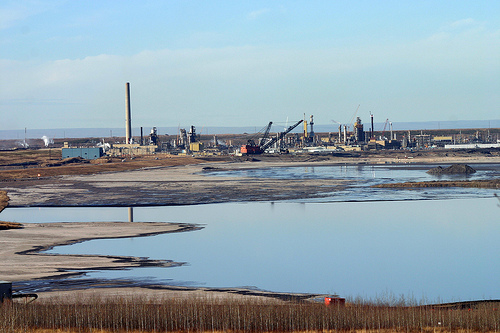
Post-2020 fuel quality rules still on agenda
The new Commission appears to be planning to keep EU rules on fuel quality to encourage greener transport fuels after 2020, following an interview given by the new energy commissioner Maroš Šefčovič.
Interested in this kind of news?
Receive them directly in your inbox. Delivered once a week.
Last year the Commission appeared to suggest in its 2030 climate and energy plan that the decarbonisation target in the Fuel Quality Directive (FQD), which requires transport fuels to reduce their CO2 emissions by 6% between 2010 and 2020, would be discontinued after 2020. The implementation of this directive has been strongly attacked by Canada because it assesses fuels made from the oil sands of Alberta as more carbon-intensive than those made from conventional crude oil.
But in an interview with the British newspaper The Guardian, Mr Šefčovič said there was a role for the FQD after 2020. ‘My first reaction is yes,’ he said. ‘We just have to adjust it to all the lessons learned from biofuels, and all the other lessons learned from the previous time.’
T&E director Jos Dings said: ‘This is an important and very significant announcement. If the Commission is prepared to look again at the clean transport fuel issue, it will improve the chances of getting meaningful sustainability criteria for biofuels, which is the other big factor in making sure transport fuels are genuinely clean.’
Mr Šefčovič’s comments come as Barack Obama made rare use of his presidential veto to reject an attempt by the Republican-controlled Congress to push through approval to build the controversial Keystone XL oil pipeline .
Obama’s move does not mean the pipeline is cancelled, only that he wants to wait for environmental impact assessments to be completed before making a final decision. However, opponents of the pipeline say the indications are that he does want to stop it. The president said a critical factor in his decision will be whether the pipeline would contribute to global warming. In a recent letter to the US State Department, the Environment Protection Agency warned that the pipeline could contribute to additional GHG emissions.
If built, the 1,900km pipeline would carry oil from the Alberta oil sands to ports and refineries on the south coast of the US. Last year, a review by the US State Department said oil from Canada’s oil sands produced 17% more climate-changing emissions than conventional oil, but it also said the fuel would be extracted anyway, and if the Keystone XL pipeline was built it would simply be exported by other routes.
It is only the third time Obama has used his presidential veto over Congress. By contrast, Franklin Roosevelt used his veto 635 times, although he was the last president to serve more than two four-year terms (1933-45).
